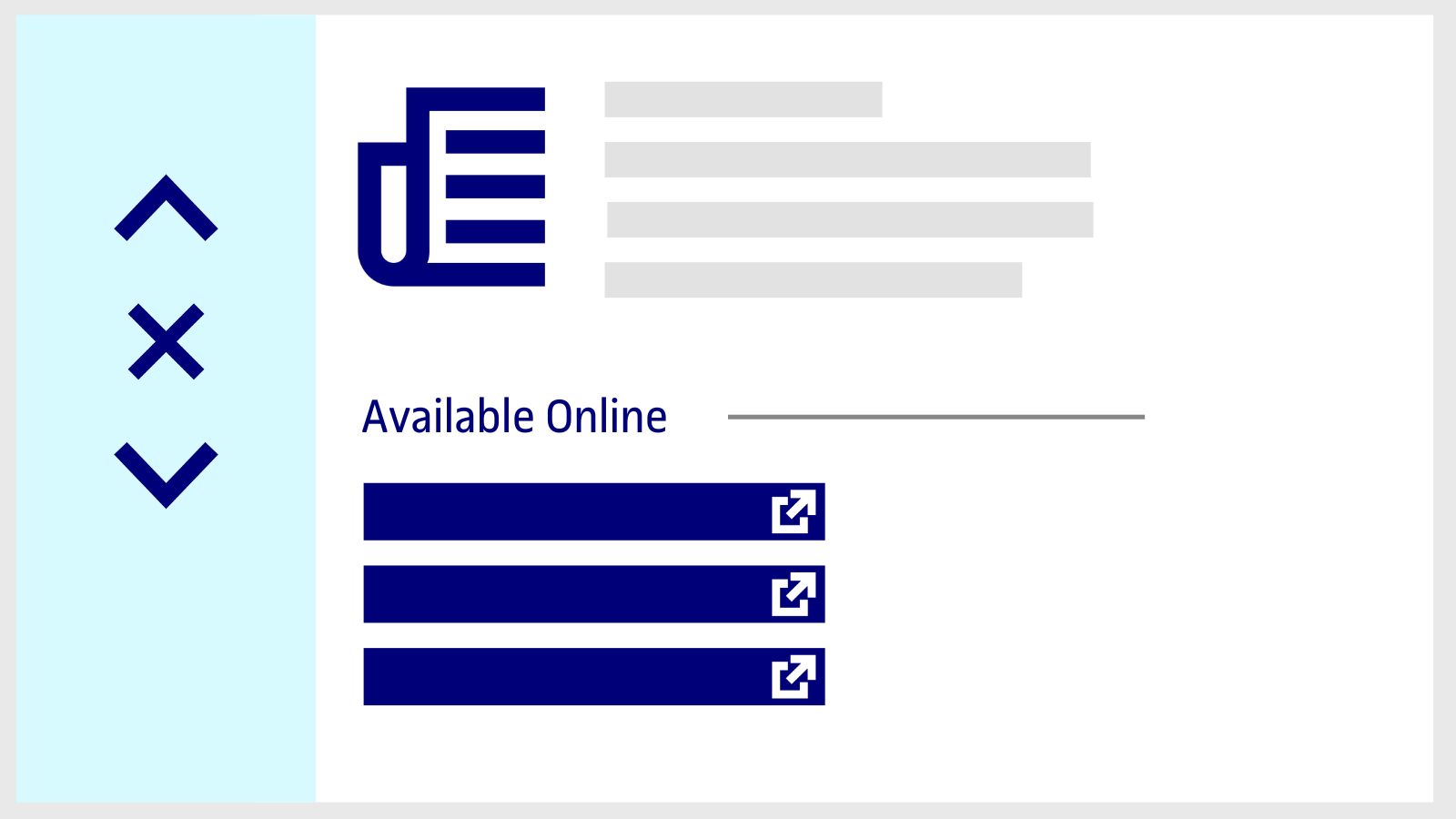How to search for a journal or article in the Library
-
Type the keywords in the Library search engine. For example, "Neuropsychology". Click the Journals button in the search tool.
-
On the results page, use the filters on the left-hand side to refine the results. For example, turn on the Author or Creation Date filter.
-
Then, click on the Apply Filters button.
-
Review the search results and choose one. Click Available Online to access the journal.
-
If, on the other hand, you want to get more information, select the title of the journal to open a new page with additional information. If the same journal is in different collections that the Library has access to, a new page will open with additional information. Choose any of the options in the Available Online section to open it.
-
You can also take a look at the Journal Search list in the top menu of the search tool to consult the titles that the Library has access to in each subject area.
Search for articles within a journal
-
Search for the title of the journal in the search box. Click on the title and a new page will open with the journal information. In the Search inside section you will see a search bar. Type in the keywords of the article you need. The results you will get from this point on are only for articles published in that journal.
- If you can't find the article in the Library's search engine, click on Extend your search to other libraries (at the top of the search engine) to see if other national and international libraries have it available to send to your email address within 24 working hours. We explain how you can do so.
Related questions
-
I'm having trouble gaining accessing to an e-resource. What do I do?
As a first step, try deleting the cookies from your browser. How to delete cookies.
If the problem persists, contact us at The Library Replies.
We will ask you to provide the following information:
Name of the resource that you can't access.
- The path you have followed to access the resource. For example, did you try to access through the online classroom or from the Library's website?
- The browser you are using.
- A full screenshot with the error that appears when you try to access the resource.
- If applicable, the error message given by the system.
- If applicable, the anti-virus programme you use.
-
What is a database?
The databases you can consult from the Virtual Library are collections of electronic documents and texts that have been indexed. There are two kinds of database available:
- Bibliographic databases: they provide basic information about the document (author, title, edition, date of publication, abstracts or reviews), but they do not offer access to the original text.
- Full-text databases
The Library subscribes to databases that allow users to consult journals, ebooks, conference proceedings, etc.
-
How can I change the search engine language?
The first time you open the search engine, the interface will appear in Catalan. If you'd like to change it, click on the Menú option in the upper right-hand corner (or your name if you're already logged in) and then go to Mostrar idioma: Català (Show language: Catalan). Choose the language of your choice in the pop-up window.
You can also set your preferred default language by going to El meu compte (My account) / Dades personals (Personal details) / Idioma per defecte de la interfície (Default interface language). You can choose between Catalan, Spanish and English. The search engine will immediately switch to whatever language you pick.
-
What language can I do the search in?
In any language. However, bear in mind that most scientific and academic publications are written or indexed in English. Consequently, you may retrieve many more results if you perform the search in English.
You also have the Language filter to delimit your results.
Make your request
Ask us if you have any questions
We'll contact you within a maximum of 48 working hours, excluding non-teaching periods and UOC holidays.
Service commitment. See the service regulations.
Library Access
Any other queries
Loan
Service mentors
If you have any questions about how the Library works, its services, resources or collections, let us know!
Operative group:







